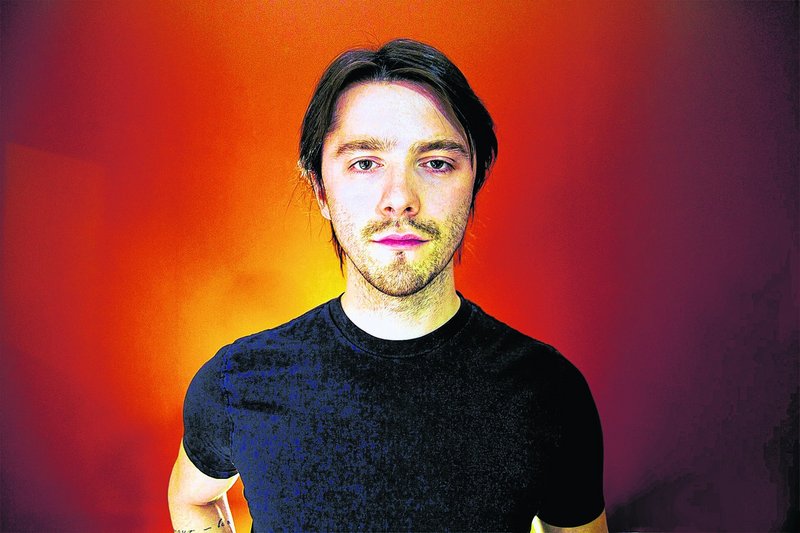Portland-based The Cassandra Effect is actually the one-man work of David Blais, who wrote, produced, performed, mixed and mastered the eight songs on the Effect’s self-titled debut album.
Blais composed the mostly instrumental CD over a two-year period, during which time he came up with new engineering techniques and did a whole lot of remixing to get the sound just right.
The album is a multi-layered sonic journey through rock and electronic landscapes, and you can listen to it in its entirety at soundcloud.com/the-cassandra-effect. Physical copies are at Bull Moose Music in Portland, Scarborough and Bangor. Find it online at Amazon, Spotify and iTunes.
GO recently asked Blais about his background and the evolution of The Cassandra Effect.
You say in your press release that the songs “attempt to audibly capture various scenarios from the past and perceived scenarios from the future.” Can you explain this further?
When I listen to music, regardless of whether or not there are vocals, I hear sound that conjures mental imagery and evokes emotion. I wanted to work in reverse and take scenes in my head and convert them into musical compositions. The scenarios or situations could take place in a time of primitive battle or during the course of a dying star. Each track to its own event.
When did you first become interested in electronic music?
When I was 15 or 16, I stumbled upon the Aphex Twin song “Iz-Us,” and it blew my hair back.
What instruments do you play?
I play guitar, bass, drums, synthesizer and tambourine. I also play the shaker.
What did you grow up listening to?
The first cassette I bought for myself was Salt-N-Pepa’s “Very Necessary” in 1993. I was only exposed to what my sisters, MTV and the radio were playing back then, so I was limited like most kids were, but I recall enjoying artists like Nas, Snoop Dogg, Dr. Dre, Prodigy, Sublime, Eric Clapton, Heart, Nine Inch Nails, Bush, Pink Floyd, Chili Peppers and Beastie Boys, to name a few. I was also exposed to a lot of Hendrix from my father, which I am grateful for.
In junior and high school, my horizon was broadened by anything from punk rock like The Descendents and Dillinger Four to electronic music like Daft Punk and Autechre.
What song is the most personal to you on “The Cassandra Effect” album?
Probably “Save Us.” It was one of earlier-made tracks, and I think it’s what gave me the momentum to actually see the project through.
It started as an unrelated sampled-based hip-hop beat that spiraled into something entirely different, with drums that were played live at double the tempo, a synth bass line, flamenco-style guitar solo and re-recorded vocals with modified lyrics, and guitars so that I was no longer using samples of other people’s work.
The intro contains an almost subliminal sample of a unique bird call that I recorded with my iPhone in Tikal, Guatemala. It has ties with the concept for that song, and is more personal in that it reminds me of that incredible trip.
What does The Cassandra Effect name mean?
The Cassandra Effect is a phrase used to describe when someone accurately predicts a catastrophic future event, knowing others won’t believe it no matter how vigilant the warning. The phrase was derived from the myth of Cassandra, who was the daughter of King Priam of Troy. As a result of her rejecting the sun god Apollo, she was cursed so that her gift of prophecy would not be believed. She expressed her knowing of Greek soldiers hiding in the famed Trojan horse story, which no one believed and thus led to the collapse of Troy.
Staff Writer Aimsel Ponti can be contacted at 791-6455 or at:
aponti@pressherald.com
Send questions/comments to the editors.


